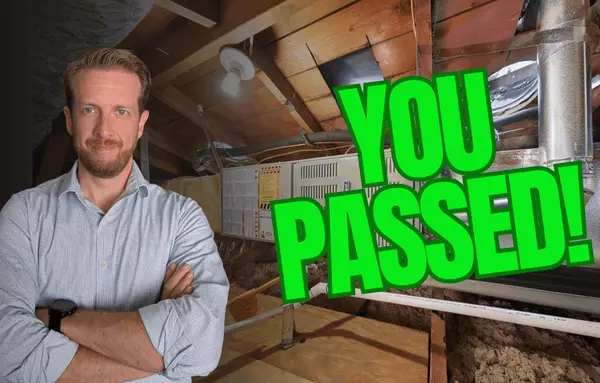Protesting Property Taxes in Harris County: Your DIY Guide

Protesting Property Taxes in Harris County: Your DIY Guide
Hey there, DIY tax protesters in Harris County, Texas! If you're looking to save some serious cash on your property taxes by filing your own protest, you’ve come to the right place. This guide will walk you through the entire process step-by-step, ensuring you have a solid case that can potentially reduce your tax bill by hundreds, if not thousands, of dollars. Let’s dive in!
Understanding the Property Tax Timeline
Before we get into the nitty-gritty of filing your protest, it’s crucial to understand the timeline of property taxes in Harris County. Knowing the key dates can help you prepare your case effectively.
- April: You will receive your property tax appraisal value assessment in the mail.
- May 15th: This is the deadline to file your protest. Don't miss it!
- September: Appraisal districts set their budgets and tax rates for the following year.
- October: Tax bills are mailed out. Be sure to pay by January 31st to avoid penalties.
- January 1st: Property tax values and exemptions are set for the year.
Who Sends Your Tax Bill?
When you receive your tax bill, it may come from various entities, which can be confusing, especially for new homeowners in Texas. Here’s a breakdown of who might send you a bill:
- County tax office
- Independent School District (ISD)
- Municipal Utility District (MUD)
If you want to verify the entities that should be sending you a tax bill you can look up your address at https://hcad.org/quick-search/
While you may receive multiple bills, remember that you are protesting the appraised value, not the individual taxes from each entity. All entities use your appraised value to determine your tax bill. Once they set the budget in September this will help them determine the tax rate to apply for the following year and that tax rate will be applied to your property's appraised value. When you file a protest you are simply protesting the appraised value of your property.
What Can You Protest?
Now that you have the timeline and understand who sends your bills, let’s discuss what you can actually protest. In Harris County, you can protest for the following reasons:
- Excessive Value: Your property is appraised for more than it's worth.
- Unequal Appraisal: Your property is appraised higher than similar properties in your area.
- Failure to Grant Exemptions: You qualified for an exemption that you were not given.
- Failure to Provide Notice: You did not receive proper notice of your property tax assessment.
Valid Reasons for Protest
When preparing your case, you’ll need valid reasons for your protest. Here are some strong arguments that may help:
- Fair Value: If you pull up the similar properties on your street on HCAD website you can determine which houses have a lower appraised value per square foot. If a neighbors house has a lower appraised value per square foot than your house then you might be able to make a case that you would like to be treated fairly to that house.
- Obsolescence
- Functional: These are factors such as layout or usability of a property. An example might be one house has modern open concepts while another has smaller rooms and lower ceiling which drive a lower market value.
- Economic: These are factors in the surrounding neighborhood that drive up or down values. It can be things such as crime rates or it can be things like backing up to a noisy bar or highway.
- Physical: When a property faces damage from things such as foundation settling or a leaky roof. Evidence of damage can be submitted with your protest to show that these impact your value.
How to Win Your Protest
To create a successful protest, you need to present a compelling case. Here’s a step-by-step guide on how to do it:
- Create a clear and concise document: Start with an introduction that states who you are and what you are protesting. Outline the top 2 to 3 reasons why you believe the appraised value should be corrected.
- Provide evidence: Include supporting documents such as photos, CMA, and comparisons to similar properties.
- Summarize your evidence: Clearly outline your argument and request a specific revised appraised value.
- Be prepared for a hearing: You may need to present your case at a hearing, so practice your presentation.
Gathering Evidence
Evidence is key to a successful protest. Here are some sources you can use:
- Visit HCAD and search for your street name to compare appraised values and square footage of similar properties.
- Get a free CMA to Look for properties that have recently sold in your area and gather their sales prices.
- Document any physical damages or obsolescence in your property that the appraisers might not be aware of.
- Include maps to explain anything about where your property is positioned and why that might be impacting your property value.
Presenting Your Case Effectively
When it’s time to present your case, remember to keep emotions out of it. Focus on logic and data. Remember to be respectful and that the people reviewing will respond better to questions and facts. Here's how to do that:
- Make a logical introduction that highlights the main points you want to address.
- Use bullet points to present your evidence clearly.
- Summarize your argument and state your desired outcome explicitly.
Bonus Resources
For more detailed information, check these helpful links:
- Texas Comptroller's Office: Property Tax Protests
- Harris County Appraisal District (HCAD) Tax Protest Video
Conclusion
Filing a property tax protest in Harris County doesn’t have to be daunting. By following the timeline, understanding what you can protest, gathering compelling evidence, and presenting your case logically, you could get a significatnly reduced tax burden. With some effort, you might find yourself saving hundreds or thousands of dollars!
If you need further assistance with a CMA, don’t hesitate to reach out. Good luck with your protest!
Categories
Recent Posts










